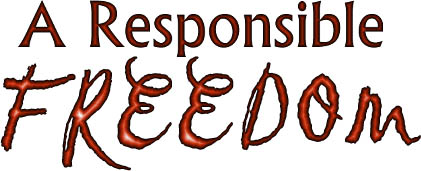A Responsible Freedom the Spiritual
 |
| Adapted from the Lectures of Rabbi Uziel Milevsky O.B.M. |
The Exodus was actually a four-fold event, as we see that G-d told Moshe, "I will take you out from under the burdens of Egypt, I shall rescue you from their servitude, I shall redeem you with an outstretched arm and with great judgments. I shall take you to Me for a people..." (Exodus 6:6-7).
But, why in the above verse does the expression "I will take you out" appear before the expression "I will rescue you from their servitude"? These two statements seem to be chronologically out of order, for we know that the Jews were released from their labor a full six months before they actually left Egypt.
The Maharal of Prague explains that the expression "I will take you out" does not refer to the physical Exodus, but rather to the spiritual and intellectual redemption of the Jewish People. This spiritual Exodus was far more crucial to the continuing existence of the Jewish People than their physical Exodus. The Torah underscores this idea by writing "I will take you out" before "I will rescue you." This teaches that the Jewish People had first to be redeemed from their intellectual exile before they could be freed from the burden of their physical slavery.
The Maharal defines the term "intellectual exile" to mean that the Jewish People were convinced that they were in Egypt to stay. Pharaoh had never given anyone permission to leave the country, and the Jews could not fathom trying to leave of their own accord. Furthermore, after living in Egypt for over two centuries, the Jews felt quite at home there and identified with the local culture. Despite all their hardships, they had no real desire to leave Egypt. All they wanted were civil rights and equality.
G-d "took them out" of this exile-mentality by sending Moshe to redeem them. At first they thought Moshe was out of his mind, but eventually he managed to convince the Jewish People that they really did not belong in Egypt. This was the crucial first step of the Exodus. It began to dawn on the Jews that Redemption was not just a legend to be passed on to one's children, but a very real Divine process that would soon begin to manifest itself. The Torah expresses this intellectual Exodus with the phrase, "I will take you out." Hence, we see that the first step of the Exodus was to make the Israelites realize that they were not "Egyptians of the Abrahamitic Persuasion," but rather that they were a special nation with a unique role to play in history.
Freedom isn't a goal unto itself, but a means to an end. For while freedom enables one to carry out very important and worthwhile responsibilities, it can also be misused for destructive purposes, such as harming other individuals and society as a whole. When freedom is viewed as an end in itself and dispensed indiscriminately, it can bring about the demise of civilized society.
The positive potential of freedom outweighs the negative by a large margin, for freedom can breed that highest of human virtues -- a true sense of responsibility. A slave cannot become responsible for his own actions because he has grown accustomed to leading his life according to the orders he receives from his master. Only the initiative that naturally emerges from a sense of personal freedom can lead one to become a truly responsible human being.
This article originally appeared in the Ohr Somayach Haggadah
published by Targum Press and distributed by Feldheim Publishers.






